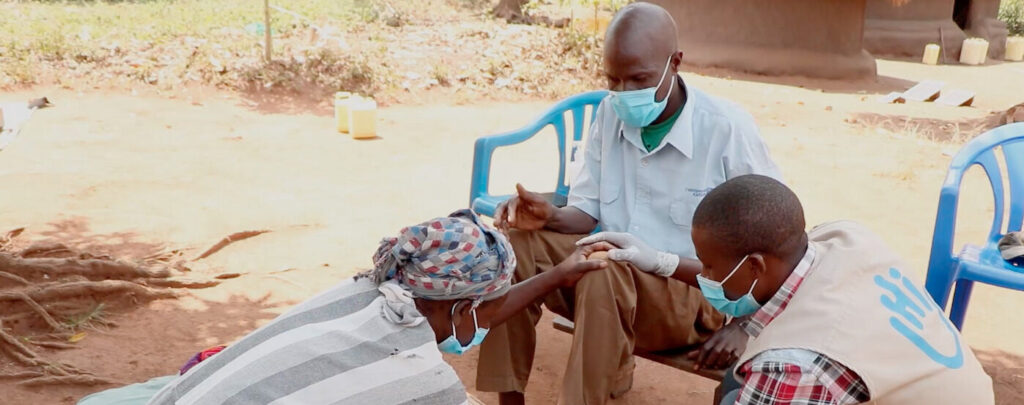Uganda
Building a model for disability-inclusive Graduation in Uganda

Overview
There is mounting evidence that the Graduation approach is an effective livelihood improvement approach for people with disabilities living in extreme poverty.
BRAC Uganda, NUWODU and Humanity & Inclusion (HI), with support from BRAC UPGI and BRAC UK are implementing a disability-inclusive graduation (DIG) program in Northern Uganda.
The DIG program forms part of a wider global partnership between BRAC and Humanity & Inclusion to test, replicate, adapt and scale contextually appropriate models for disability-inclusive Graduation in Uganda and beyond.
Key Objectives
The DIG project will empower 2,700 people aged 15 – 64 who are living in extreme poverty. Of those participating, 17% (454) are people living with a disability, and 87% (2,343) are women.
It is taking place in four Districts of Uganda: Kiryandongo District (Western Region) & Gulu, Nwoya and Oyam Districts (Northern Region) of Uganda.
Progress
Overall Timeline: 2019 – 2022
Like all Graduation programs, the DIG program will provide a comprehensive set of interventions based on the four key pillars of Graduation:
- Supporting inclusive livelihoods through an inclusive market assessment, income generating asset packages; technical skills training; personal business plans and; bi-monthly home coaching.
- Social protection is supported via a six-month consumption stipend, healthcare subsidy, people with disabilities rehabilitation, physiotherapy and psychosocial support and improving access to government and NGO safety nets and services.
- Financial Inclusion is achieved through financial literacy training and creating inclusive village savings and loans (VSLA) groups to improve financial management skills and positive savings behavior.
- Social Empowerment is supported by home coaching to provide individual counselling and life-skills, establishing Village Poverty Reduction Committees (VPRCs) and advocacy/social cohesion activities; a personalised approach designed to increase confidence, aspirations, and social integration within communities.
- The programme will increase the skills and knowledge of civil society & government actors in Uganda resulting in enhanced capacity & accountability to implement disability inclusive development.
Learning is also a critical component of the Graduation approach. To promote the efficacy and uptake of Graduation, the DIG program will aim to increase the skills and knowledge of civil society & government actors in Uganda resulting in enhanced capacity & accountability to implement disability-inclusive development.
It will also employ a Monitoring, Evaluation and Learning (MEL) system to identify, verify and share results with consortium partners, supported communities, and other poverty reduction and social protection actors in Uganda and internationally, and supported communities. This includes: a Digital Data Gathering system; an external evaluation to verify results; process documentation that will explain how results were achieved; and the development of guidelines for adapting disability-inclusive graduation programming.
Country Specific Resources & Collateral
Project Partners
- BRAC Uganda & BRAC UK
- Humanity & Inclusion (HI)
- National Union of Women with Disabilities of Uganda (NUWODU)
